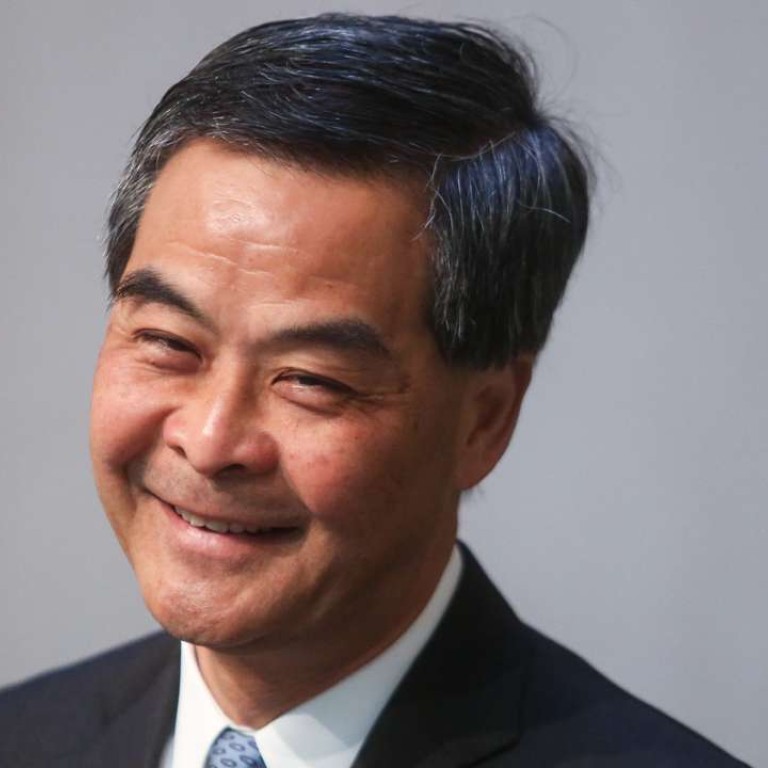
Hong Kong government to subsidise firms scrapping MPF offsetting mechanism for a decade
Chief executive to unveil handouts for employers to finance ditching of controversial pension fund mechanism, but contribution to be lower than expected
Hong Kong employers will be subsidised for 10 years with taxpayers’ money – although the government’s yearly contribution will be lower than expected – after the scrapping of a controversial pension fund payment system.
Chief Executive Leung Chun-ying will unveil in his swansong policy address on January 18 the proposal to ditch the mechanism that allows companies to use the money they put into workers’ retirement funds to offset severance and long-service payments.
The government subsidy in the first year of the transitional period will be less than half the amount used for the offsetting purpose, and progressively reduced over a decade.
The government will launch a three-month consultation on the plan, and table legislation to amend the Mandatory Provident Fund (MPF) Schemes Ordinance and the Employment Ordinance if there is enough public support.

The plan, which will cost the government billions, is one of the major initiatives to be announced by Leung in his last policy blueprint before his tenure ends in June.
While rejecting popular demands for a universal pension scheme, he will instead hand out a monthly subsidy of HK$3,400 to elderly residents whose individual assets are capped at HK$140,000.
A source familiar with the matter said the amendment bills would specify a cut-off date, after which employers would no longer be allowed to offset staff severance and long-service payments with their MPF contributions.
However, the source said it was unlikely that the mechanism, a source of constant friction between companies and labour unions since the MPF system was implemented in 2000, would be scrapped this year because of time needed for public consultation and drafting of amendments.
“It’s also highly unlikely the amendment bills will be tabled to the Legislative Council before the tenure of the current administration expires in June,” the source said.

In Hong Kong, companies and employees are both required by law to contribute an amount equal to 5 per cent of workers’ monthly wages – capped at HK$1,500 – to their MPF accounts. In 2015, the total amount of employers’ contributions used to offset long-service and severance payments was HK$3.35 billion, up 11.5 per cent from 2014.
The chief executive is running out of time to fulfil his pledge in his 2012 election manifesto to “progressively reduce” the proportion of MPF contributions that can be used for offsetting payments.
The source said the government would offer subsidies for a decade after the ending of the mechanism.
“The subsidy offered in the first year of the transitional period will account for lower than half of the amount used for the offsetting purpose. It will decrease as time goes on,” the source said.
At present, severance and long-service payments are both calculated by taking two-thirds of an employee’s last monthly salary and multiplying it by years of service. The government will propose reducing the two-thirds base to half of the monthly salary.
Tang Ka-piu, of the Federation of Trade Unions, said the subsidy would be acceptable as long as it helped achieve the goal of scrapping the unpopular mechanism.
However, Federation of Hong Kong Industries deputy chairman Jimmy Kwok Chun-wah countered that owners of many small and medium-sized enterprises would object as it would increase their operating costs.
Irons Sze Wing-wai, an honorary president of the Chinese Manufacturers’ Association, also said the proposal was unacceptable.


